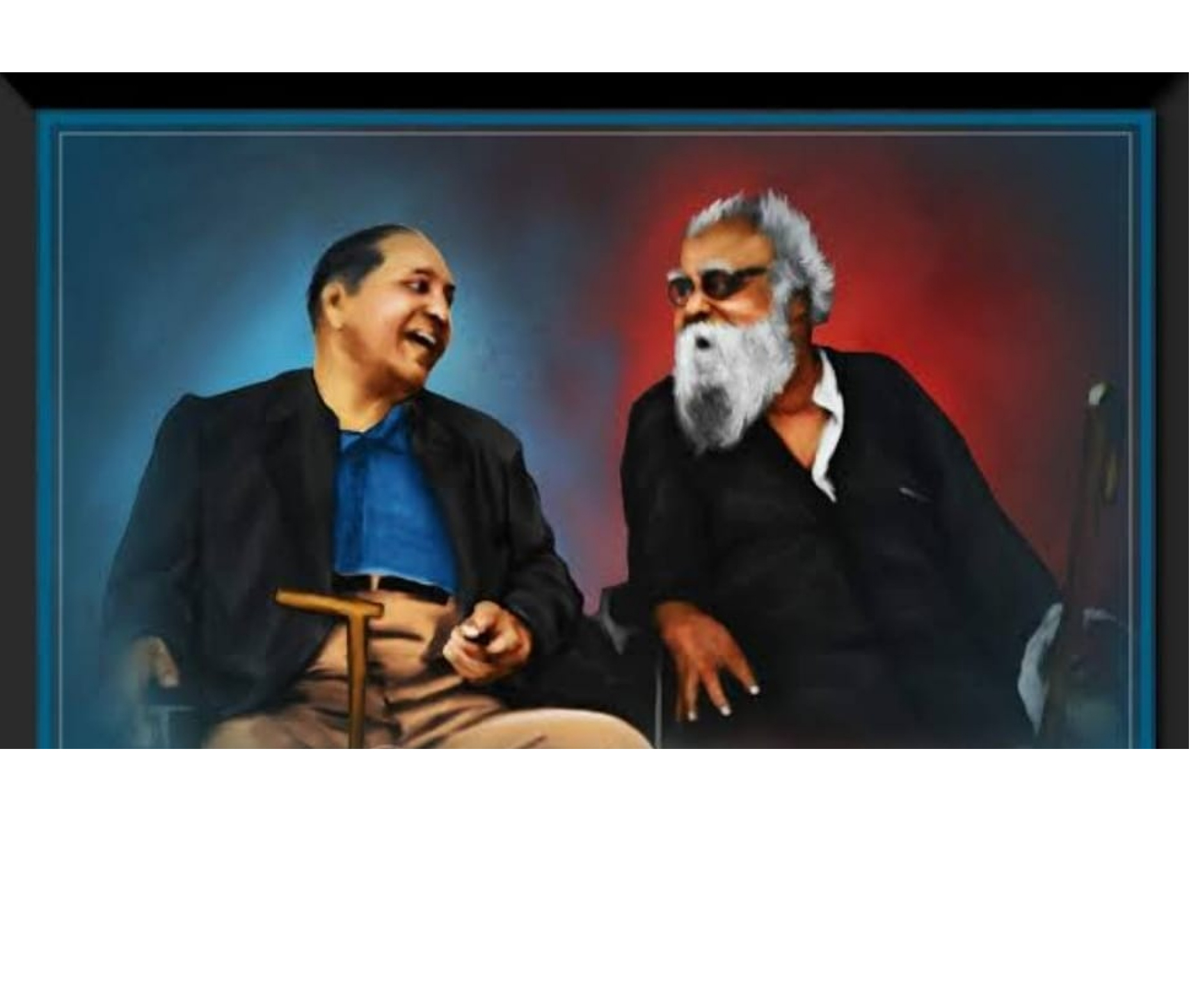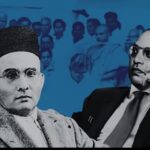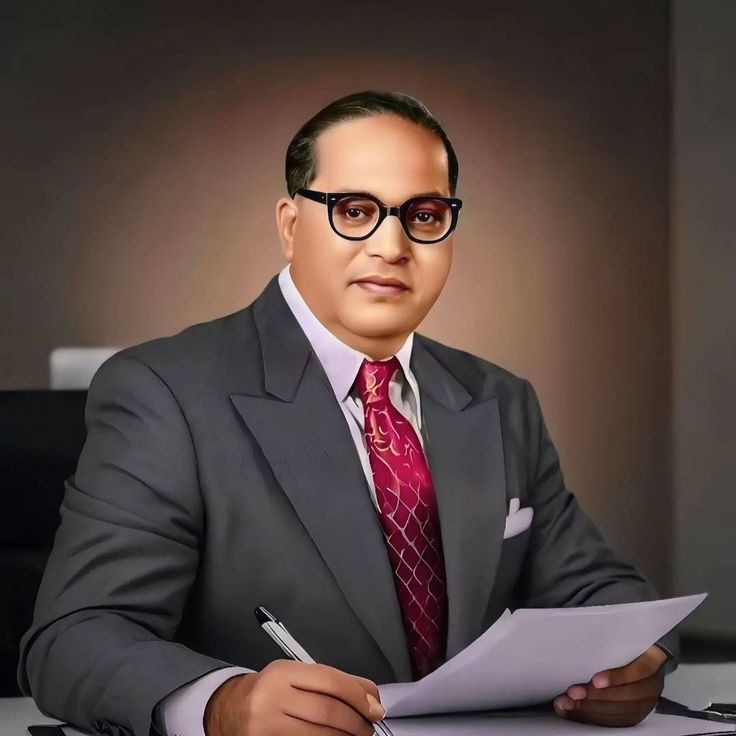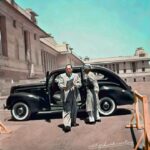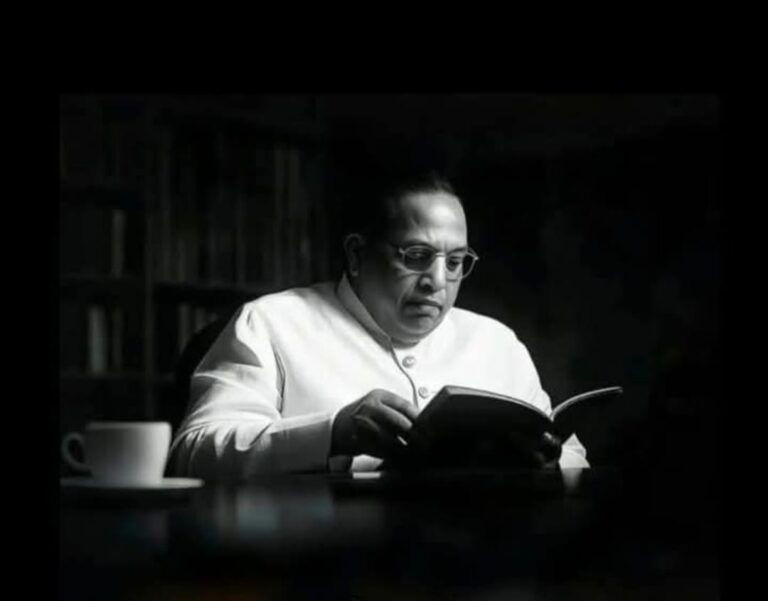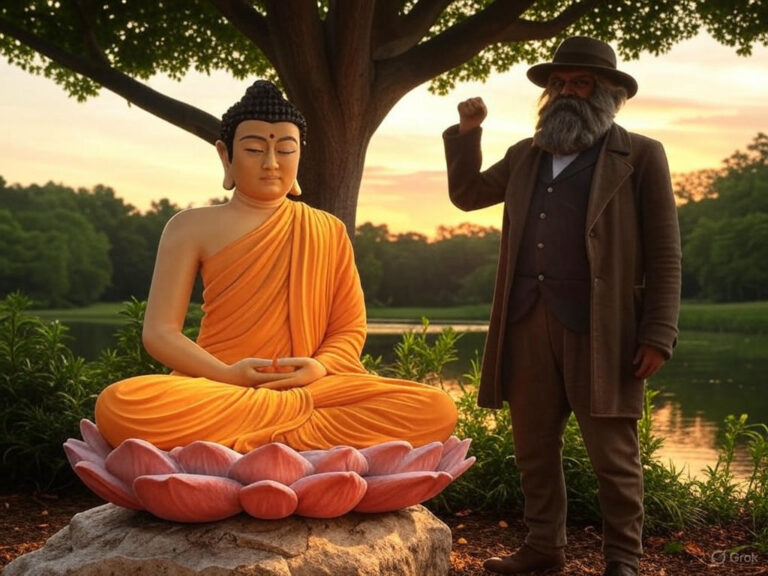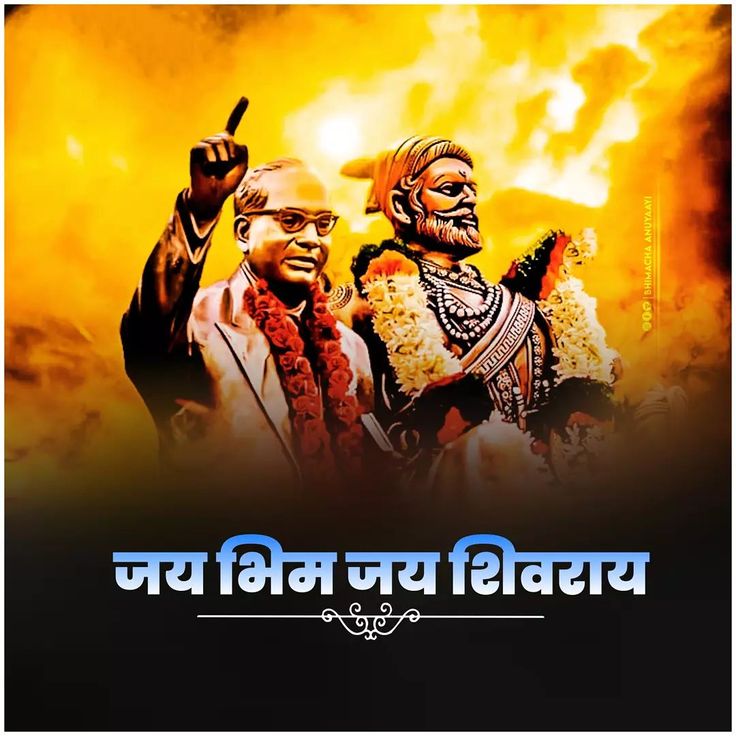India’s fight against caste oppression and social inequality was led by two towering figures, Periyar and Ambedkar. Though they came from different regions (Tamil Nadu and Maharashtra), their mission was the same: to destroy caste hierarchy and establish a society based on equality, rationality, and self-respect.
Periyar, the fiery social reformer from the South, challenged Brahminical dominance through the Dravidian movement, while Ambedkar, the architect of India’s Constitution, fought for Dalit rights and social justice. Though they met only once, their ideologies deeply influenced each other.
This article explores:
✔ Periyar’s views on Ambedkar
✔ Ambedkar’s thoughts on the Dravidian movement
✔ Their historic meeting and collaboration
✔ Powerful quotes that define their legacy
1. Who Were Periyar and Ambedkar?
E.V. Ramasamy (Periyar) (1879–1973)
- Born in Tamil Nadu, Periyar was a radical social reformer who fought against caste, religion, and gender discrimination.
- Founded the Self-Respect Movement, promoting rationalism and equality.
- Led the Dravidian movement, opposing Brahminical dominance and Hindi imposition.
- Advocated for women’s rights, inter-caste marriages, and atheism.
Dr. B.R. Ambedkar (1891–1956)
- Born into a Dalit (Mahar) family, Ambedkar faced brutal caste discrimination but rose to become India’s first Law Minister.
- Drafted the Indian Constitution, ensuring rights for Dalits, women, and minorities.
- Converted to Buddhism, rejecting Hinduism’s caste system.
- Founded the Republican Party of India to continue his political struggle.
2. What Did Periyar Say About Ambedkar?
Periyar deeply respected Ambedkar and saw him as the only leader who truly understood caste oppression.
Key Points from Periyar on Ambedkar:
- “If there is one man who deserves to be called a modern Buddha, it is Ambedkar.” (Periyar admired Ambedkar’s fight against caste.)
- “Ambedkar is the leader not just of Dalits but of all oppressed people.” (He believed Ambedkar’s struggle was universal.)
- “Unlike Gandhi, Ambedkar did not compromise with caste Hindus.” (Periyar criticized Gandhi’s soft approach to caste reform.)
Why Did Periyar Admire Ambedkar?
✔ No Compromise on Caste: Both rejected Gandhian reformism and demanded complete annihilation of caste.
✔ Shared Rationalist Views: Both opposed blind faith, superstitions, and religious dogma.
✔ Political Vision: Periyar supported Ambedkar’s call for separate electorates for Dalits (though it was not implemented).
3. What Did Ambedkar Say About the Dravidian Movement?
Ambedkar supported Periyar’s anti-Brahmin, anti-caste movement, but had some differences.
Ambedkar’s Views on Dravidam:
- “The Dravidians are the real natives of India.” (Ambedkar believed lower castes were the original inhabitants oppressed by Aryans.)
- “The South is more progressive in social reforms than the North.” (He praised Tamil Nadu’s anti-caste movements.)
- “But Dravidian politics must include Dalits fully.” (He warned against non-Brahmins dominating Dalits.)
Did Ambedkar Support Periyar’s Anti-North Stance?
- Ambedkar agreed that Brahminical Hinduism came from the North, but he focused on caste, not region.
- He wanted Dalit-Bahujan unity across India, not just in the South.
4. The Historic Meeting Between Periyar and Ambedkar
In 1944, Periyar and Ambedkar met in Mumbai for discussions on social justice and political strategy.
What Did They Discuss?
✔ Common Fight Against Caste: Both agreed that Brahminism was the root of oppression.
✔ Separate Electorates for Dalits: Ambedkar wanted political safeguards; Periyar supported this.
✔ Religious Conversion: Both believed Hinduism could not be reformed and encouraged oppressed castes to leave it.
Why Didn’t They Work Together More?
- Geographical Limitations: Periyar worked mainly in Tamil Nadu; Ambedkar in Maharashtra & North India.
- Political Differences: Ambedkar focused on constitutional methods, while Periyar was more radical and agitational.
5. Powerful Quotes by Periyar and Ambedkar
Periyar’s Quotes
- “There is no god, there is no god, there is no god at all!” (Challenging religious superstitions.)
- “If you are a slave mentally, no freedom can liberate you.” (On self-respect.)
- “Burn the Manusmriti!” (Opposing the ancient text that justified caste.)
Ambedkar’s Quotes
- “I like the religion that teaches liberty, equality, and fraternity.” (Why he chose Buddhism.)
- “Caste is not just division of labor, it is division of laborers.” (On how caste exploits.)
- “Political democracy cannot last unless there is social democracy.” (Why caste must be destroyed.)
6. Similarities and Differences Between Periyar and Ambedkar
| Aspect | Periyar | Ambedkar |
|---|---|---|
| Goal | Destroy caste, Brahminical dominance | Annihilate caste, constitutional rights |
| Method | Mass movements, radical speeches | Legal reforms, political representation |
| Religion | Atheist, anti-Hinduism | Converted to Buddhism, rejected Hinduism |
| Region | Tamil Nadu (Dravidian focus) | Pan-India (Dalit movement) |
7. Their Legacy in Modern India
- Periyar’s Influence: The Dravidian parties (DMK, AIADMK) continue his anti-caste, Tamil pride politics.
- Ambedkar’s Influence: Dalit movements, reservation policies, and Buddhism stem from his work.
- Shared Legacy: Both inspired anti-caste movements, rationalism, and social justice struggles.
Conclusion: Two Revolutionaries, One Mission
Periyar and Ambedkar never led a joint movement, but their ideologies were aligned—both fought for a casteless, equal India. While Periyar was more radical and cultural in his approach, Ambedkar used law and politics to secure rights.
Today, their teachings remind us that social justice is not given; it is fought for. Whether through protests or policies, their legacy lives on in every struggle against oppression.
Final Thought
“Periyar lit the fire of self-respect in the South; Ambedkar built the ladder of equality for all India. Together, they remain the conscience of a nation still fighting caste.”
